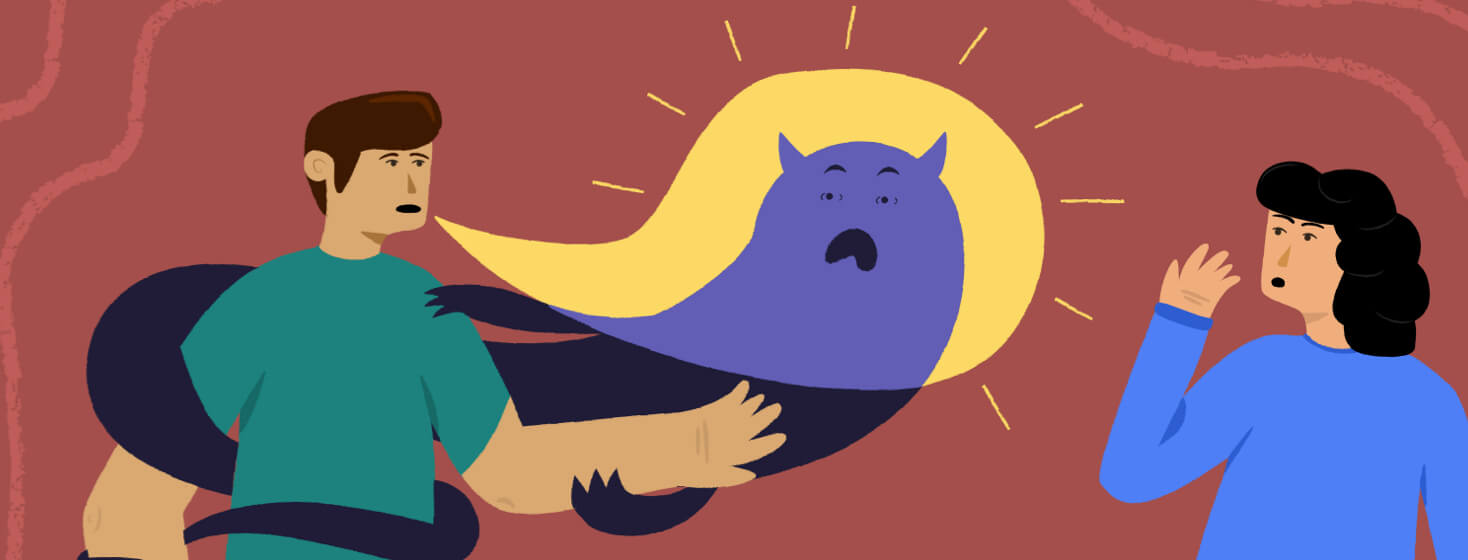Invisibility: Blessing or Curse?
There are many illnesses that are fairly visually obvious. Many chronic conditions may be difficult — or, at times, even impossible — to hide. Narcolepsy is not one of them.
But is this something that should be considered a blessing or a curse?
Not all disabilities look the same
When we mention the word “disability,” most people will envision someone in a wheelchair or with a physical impairment.
After all, it is simply instinctual for humans to place everything into a category in order for our brain to understand what appropriate reaction needs triggering. It is vital to human survival. However, this vital mechanism that aids in our survival is also to blame for a number of social challenges.
The definition of disability
Disability is not a new concept. It is widely recognized and understood.
The word “disability” in the Merriam-Webster dictionary is defined as “a physical, mental, cognitive, or developmental condition that impairs, interferes with, or limits a person's ability to engage in certain tasks or actions or participate in typical daily activities and interactions."1
If you read between the words, it does actually expressly include invisible illnesses in its definition. However, most people still fail to recognize their existence even when coming face to face with them.
What is an invisible disability?
The Invisible Disabilities Association defines an invisible illness as “a physical, mental or neurological condition that is not visible from the outside, yet can limit or challenge a person’s movements, senses, or activities.”2
In my opinion, this is a clear and straightforward definition overall that any person can understand. The problem is that most people have probably never heard of the term.
Acceptance of my narcolepsy diagnosis prompted me to find community
By the time I first became acquainted with the term “invisible illness”, I had already been diagnosed with narcolepsy type 1 for almost two years.
I was so far down the road of denial that the thought of acknowledging its existence was deliberately absent from my “to do” list.
As time went by, and acceptance began to emerge, I became more curious about finding a community of my own. I embarked on a mission to discover more information about others like me and with this, I happened upon this term.
Ever since, I have grappled with deciding whether or not “being invisible” is a positive thing.
Our pain is often seen as nonexistent
On one hand, I feel blessed that I can walk along the street and be inconspicuous. This is something to be grateful for.
I myself have been guilty of seeing someone with a very unconventional condition and doing a brief double-take. Regardless of how “innocent” my intentions were (most times it is mere curiosity), it doesn’t change the fact that that person probably has hundreds of eyes on them every single day. I can’t imagine how difficult it must be to live like this.
On the other hand, being “invisible” presents other, contrasting adversities that are inescapable, too. Our pain is often regarded as nonexistent because, in reality, it exists only to ourselves. It does not present itself to the outside world.
How do you explain invisible illness?
How can you explain something that people never really see and have never felt?
Either you live a life constantly hammering your inner struggles to everyone you meet (which may actually foster more disbelief than anything else), or you keep it to yourself and eventually run the risk of people thinking that you aren’t disabled at all.
It’s a lose-lose situation no matter how you look at it.
Good people will take you at your word
So what’s the answer? Is there even an answer?
Almost 5 years following my diagnosis, I have come to the conclusion that people will judge you no matter what. Their judgment will be formulated by their own personal beliefs.
If the person is someone who is genuinely good and genuine, no matter what part they play in your life or whether they know you well or not, they will take you at your word and be considerate to your condition always. If the person lives a turbulent life, has poor self-esteem or sees everything in a negative light, you can probably expect this person to question your condition and often disregard or forget it completely.
I choose to have only the former in my life and not give focus to the latter.
Not so invisible all the time
What has been the most important factor for me, above all, is meeting and talking to other people living with my condition.
Having people in my life with similar conditions makes my invisible illness not feel so invisible all the time.

Join the conversation